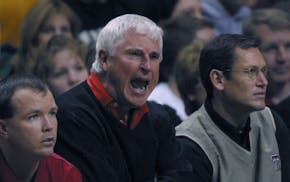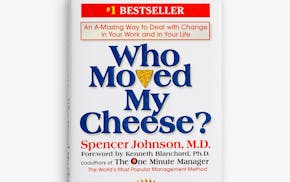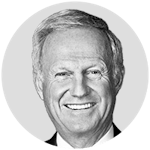"Trust flows from individuals, not organizations." That's the best summary I can provide of David Horsager's new book, "The Trust Edge: How Top Leaders Gain Faster Results, Deeper Relationships and a Stronger Bottom Line."
Why is this book so valuable? The topic couldn't be timelier. In my opinion, the most important five-letter word in the English language is spelled T-R-U-S-T. It's so critical, publisher Simon & Schuster's Free Press has made "The Trust Edge" its leading business book this fall, with a publication date of Tuesday.
Want another reason why I think it's so important? I know Dave Horsager, and I trust him! He is the perfect author for a book on this topic. He has been studying the topic for 10 years, and we can all benefit from his research.
Let me give you a sample of his wisdom: "Trust is the confident belief in an entity to do what is right, to deliver what is promised, to be the same every time, regardless of circumstances."
Your customers have to be able to trust you. Your employees must trust you. Your vendors must trust you. Even your competitors must trust you. It's that simple. If any of those relationships break down, close your doors and find another way to make a living.
Horsager says, "Without trust, the transactions cannot occur. Without trust, influence is destroyed. Without trust, leaders lose teams. Without trust, organizations lose productivity, relationships, reputation, talent retention, customer loyalty, creativity, morale, revenue and results."
As he was studying top organizations and leaders, Horsager found that some had a clear advantage over others: "The greatest leaders and organizations of all time have had the same competitive edge. They were trusted."
He confirms what I have learned over my decades in business: Trust doesn't happen overnight. "While it may appear to be static, trust is more like a forest -- a long time growing, but easily burned down with a touch of carelessness," he says.
Several years back I wrote about a study by Forum Corp., which Horsager also cites as evidence of the importance of trust. Using hundreds of salespeople from 11 companies in five different industries, the researchers found that the unique trait of top producers was honesty -- not charisma, ability or knowledge.
When we trust people, we are optimistic not only that they are competent to do what we trust them to do, but also that they are committed to doing it. They will be totally honest with a customer even when it is difficult or potentially costly. Their reputations are more important than any deal.
In that spirit, Horsager has identified the eight pillars of trust that are key attributes of successful leaders: clarity, compassion, character, competency, commitment, connection, contribution and consistency.
This book has arrived not a moment too soon for the trust crisis we are facing in the world.
Mackay's Moral: Doing the right thing is never the wrong thing to do.
Harvey Mackay is a Minneapolis businessman. Contact him at 612-378-6202 or e-mail harvey@mackay.com.
Mackay: Approach AI with a mindset of collaboration rather than fear

Mackay: The key to winning in sports, business and life is practice

Mackay: Humor can make even dire situations bearable

Mackay: Want a raise? How and when you ask for it matter


